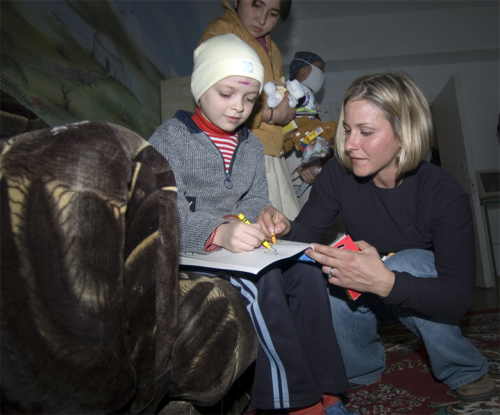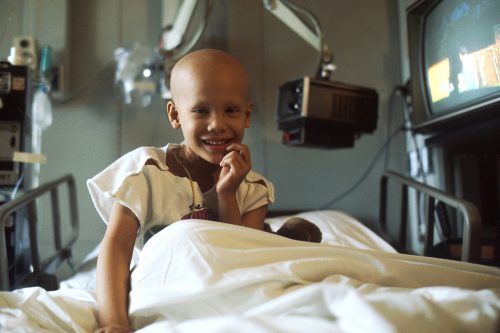
Cancer is reported as a rare health condition among children ages 0-19 years old. Nonetheless, it has been the leading cause of death by disease among children past infancy. In 2016, statistics reported that approximately 80,000 deaths of children worldwide were accounted for cancer. Childhood cancer differs from adult cancer due to various factors. One common ground is that most diseases are not due to the lifestyle element where adults’ cancer are linked. Cancer in children almost develops without any distressing symptom until it is detected, at most of the times, it is already in its advanced stage.
Researchers are still leaning towards heredity and genetics as the primary etiological agent for childhood cancer. The DNA mutations passed from the parent to the child increases the risk of a child to develop specific forms of cancer. Scientific investigations are still ongoing on finding other possible reasons for cancer development; because until now, there has not been a universal statement on its actual cause.
The Difference
Childhood cancer is not easy to take. Parents go to a cycle of grief and depression upon knowing the diagnosis. When the child undergoes a series of treatment, the financial aspect becomes a burden, and the after-effects of the surgery become a dark cloud whether the child survives or not.

Compared to adults, cancer cells in children shows a good reaction to treatment showing good prognosis of survival. However, the side effects of the medication will take its toll after about several years later. Late-effects can occur to nearly 60% of childhood cancer survivors such as heart problem, hepatitis, sterility, sensory problems, and secondary cancers. Also, long-term medical follow-up is a significant concern to ensure that cancer processes are detected early if there are any.
Medical advancement in the treatment of childhood cancer has vastly improved its survival rate. Let’s take for example the case of Acute Lymphoblastic Leukemia, a most common childhood cancer that has dramatically increased its survival rate to 88% compared to less than 10% half-century ago. This is promising for this type of cancer. Other types of lymphoma, brain tumor, and soft tissue sarcoma remain to have a poor prognosis and low survival rates.
Other Effects
Experiencing cancer at an early age exposes the vulnerability of the child’s body. Cancer can be localized, or it can affect the whole-body system. If this happens, the child will have multiple medical problems to handle, and the ordeal of going through various treatments is not very welcoming. The different treatment modalities may also have some effects on the developmental stages of the child. Surgical interventions, chemotherapy, radiation therapy, complex medication administration, and transplantations can have some positive impact, but the adverse reactions can sometimes take years to be detected.

The financial aspect can also be a significant factor in consideration of surviving cancer. Some cancers require the newest form of treatments, and these are way out of budget for some families. Some medications are only available in some countries thus acquiring them will require the family and the child to travel and stay there for a duration of time. All of these falls under the financial factor. So, it is easy to say that if you don’t have enough financial resources, the chances of survival become nil.
Cancer is not always a good thing – at any age. Getting cancer is like getting a death sentence. The human response is only limited to facing the challenges it brings. The worst thing about having children with cancer is not always a welcoming idea. As parents, we tend to rationalize that they don’t deserve to suffer this condition. But then again, as humans, we tend to fight the battle at any cost. Fighting cancer is still one’s most significant battle there is—especially with children. At this point, all we can is wait and hope that the next treatment or scientific discovery can bring positive outcomes in overcoming cancer.
